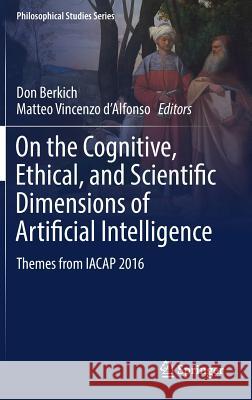On the Cognitive, Ethical, and Scientific Dimensions of Artificial Intelligence: Themes from Iacap 2016 » książka
topmenu
On the Cognitive, Ethical, and Scientific Dimensions of Artificial Intelligence: Themes from Iacap 2016
ISBN-13: 9783030017996 / Angielski / Twarda / 2019 / 403 str.
On the Cognitive, Ethical, and Scientific Dimensions of Artificial Intelligence: Themes from Iacap 2016
ISBN-13: 9783030017996 / Angielski / Twarda / 2019 / 403 str.
cena 644,07
(netto: 613,40 VAT: 5%)
Najniższa cena z 30 dni: 616,85
(netto: 613,40 VAT: 5%)
Najniższa cena z 30 dni: 616,85
Termin realizacji zamówienia:
ok. 16-18 dni roboczych.
ok. 16-18 dni roboczych.
Darmowa dostawa!
Kategorie:
Kategorie BISAC:
Wydawca:
Springer
Seria wydawnicza:
Język:
Angielski
ISBN-13:
9783030017996
Rok wydania:
2019
Wydanie:
2019
Ilość stron:
403
Waga:
0.75 kg
Wymiary:
23.39 x 15.6 x 2.39
Oprawa:
Twarda
Wolumenów:
01
Dodatkowe informacje:
Wydanie ilustrowane











